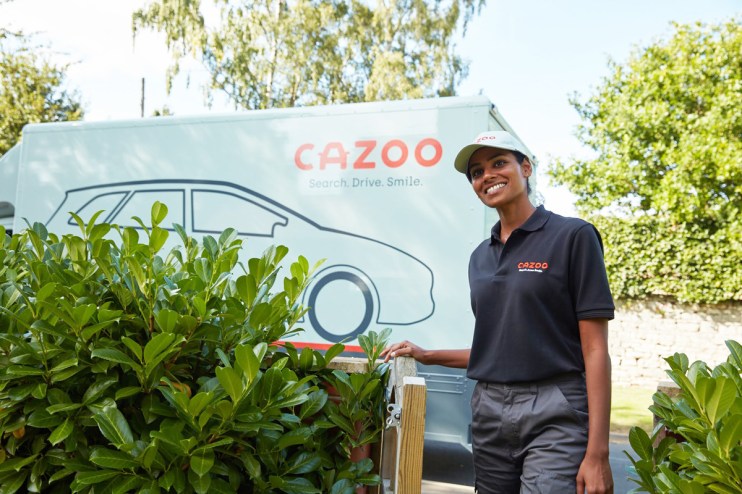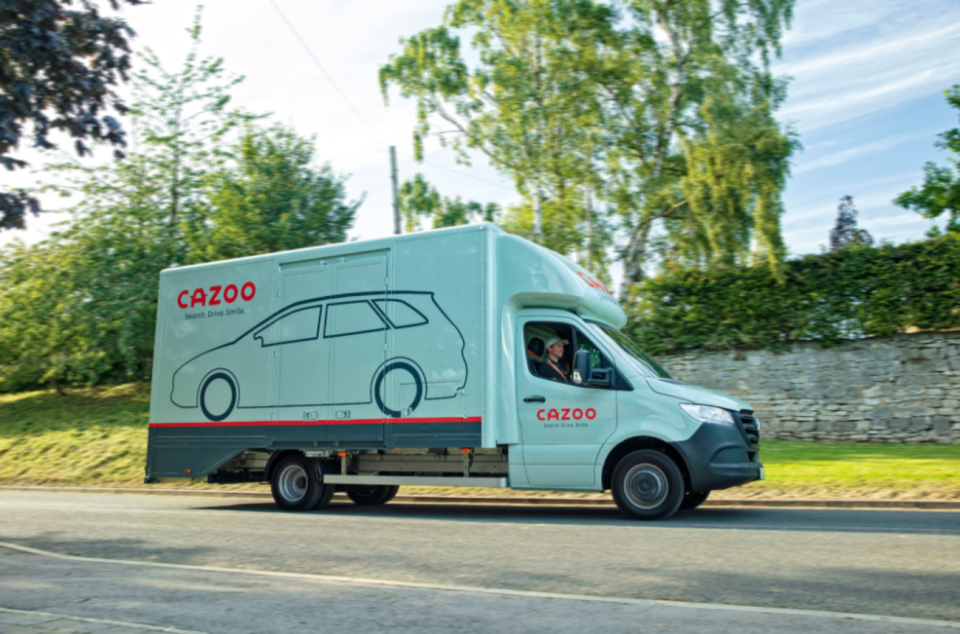Cazoo: Was online car retailer always doomed to fail?

The downfall of online car retailer Cazoo was cemented this week when it was confirmed it had collapsed into administration.
With its New York-listed parent company also heading for liquidation, the announcement capped a high-profile and sharp downfall for a business that was valued at more than £5bn when it floated snubbed London and floated across the pond in 2021.
The future of the brand, which recently completed a major pivot in its business model and cut around 700 jobs, is now in the hands of Teneo.
But did it have to end this way? Could Cazoo’s management have avoided catastrophe or was its previous business model always unsustainable once the height of the Covid-19 pandemic was in the rear view mirror?
‘It would have been a surprise if Cazoo didn’t fizzle out’
According to John Bringardner, head of Debtwire, Cazoo followed a growth plan that “burned too bright, too fast” and that it would have been “surprising if it did not fizzle out at some point”.
He added that the pandemic gave the company an “early but temporary competitive advantage”, and despite heavy spending on marketing, “they failed to differentiate themselves in a crowded market”.
Bringardner said: “Combine those factors with a heavy debt load and the general weakness of companies that have gone public via SPAC mergers, and the fact that they’ve ended up in administration begins to look it was inevitable.”

‘Cazoo was always doomed’
David Kendrick, partner at UHY Hacker Young, said that Cazoo “was always doomed” as its business model required it to sell more cars in its first year than Arnold Clark, the UK’s biggest dealership group, “which it wasn’t able to do”.
He added: “To attempt to do that it had to invest in infrastructure on a huge scale – storage, cleaning, IT, delivery. It never generated the sales it needed to justify that investment.
“Cazoo will go down as one of the pandemic-era business models that didn’t survive the return to normality.
“There are many good reasons why the current car dealership model has proven very resistant to disruptors and is relatively unchanged in a century.
“Broadly, consumers like the in-person car-buying experience. Quite justifiably, they want to touch and drive something that will probably be their second-largest purchase after their homes.”
“In the end Cazoo was a very clever marketing approach that didn’t pan out and cost a lot of people a lot of money.”

Second-hand car bubble bursts and Cazoo ‘ends up on the scrap heap’
Dan Coatsworth, investment analyst at AJ Bell, said: “Cazoo joined the New York Stock Exchange in August 2021 close to the top of the market for both car prices and euphoria around young companies offering the prospect of rapid growth.
“It was valued at approximately $8bn at listing three years ago, quite remarkable for an immature business that had generated $162m in sales in the previous year.
“That was a big multiple of sales, even allowing for the cash pile, especially as the business was in start-up mode and thus loss-making as it embarked upon a customer acquisition drive.
“Investors didn’t seem to care – they were lapping up anything that looked exciting and didn’t think twice about how much they paid.
“Record low interest rates, quantitative easing, furlough schemes and other initiatives saw a lot of cash slosh into financial markets, and many investors lost their discipline.”

Coatsworth adds that they were “lulled by cheap money, the prospect of quick gains and a feeling that the world would never be the same again” after the pandemic.
He also argues that some investors that the economic conditions at that time were the new normal and took the view that Cazoo was untouchable.
Coatsworth added: “They should have remembered the phrase ‘it’s never different this time’ as all the positive characteristics supporting Cazoo soon disappeared, triggering a downward spiral for the company and its share price.
“Furlough schemes stopped and in some countries were replaced by tax hikes to pay for them. Interest rates rose as inflation reared its head after forty years of lying dormant.
“Quantitative easing ended. Recession fears hit the stock market and investor risk appetite disappeared into thin air.
“More attention was paid to how much profit companies made in the present, not what they might do in the future. On this metric, Cazoo suddenly looked unappealing.
“Even as sales surged from $162m in 2020 to $1.2bn in 2022 the firm still lost more than half a billion dollars.
“Questions were asked whether Cazoo’s business model would now take a lot longer to scale to profitability, particularly as competition was heating up.
“Ultimately, the second-hand car market saw its bubble burst and all the supposed disrupters like Cazoo found themselves on the scrap heap.”
